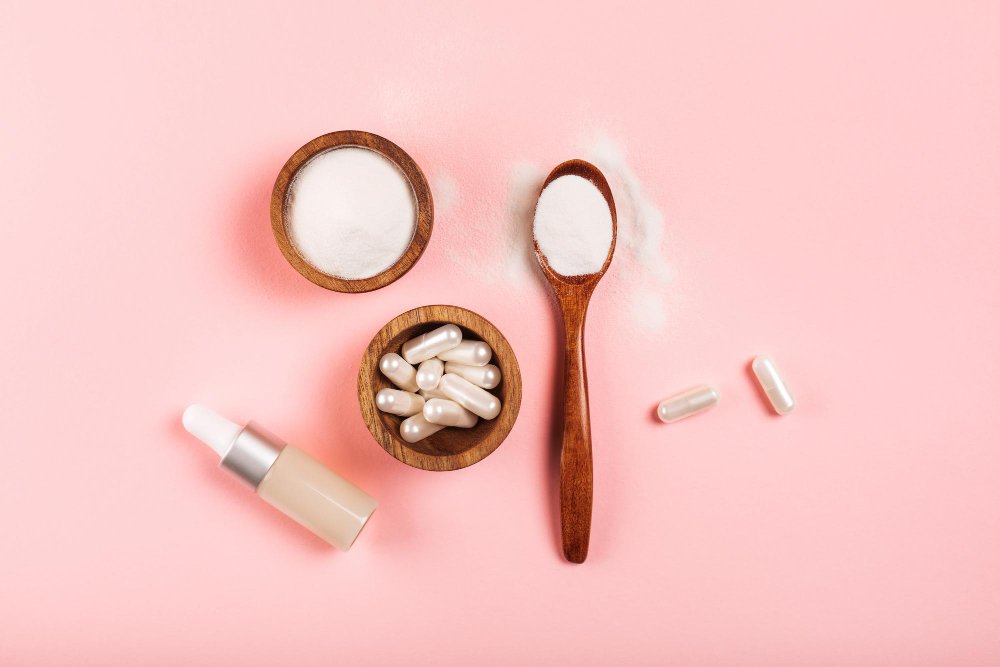L-Cysteine is a semi-essential amino acid that plays a vital role in various physiological processes within the body. It is known for its potential benefits, including supporting detoxification, enhancing immune function, and promoting healthier hair and skin.
If you are curious about how L-Cysteine can fit into your routine, this article will discuss its effectiveness, potential benefits, side effects, and important precautions to consider before using this supplement.
We'll provide insights to help you make an informed decision regarding L-Cysteine's role in your health regimen.
Uses & Effectiveness
L-cysteine may be beneficial for detoxification, antioxidant defense, and immune support. It may help produce glutathione, a powerful antioxidant that protects cells from oxidative stress, potentially reducing the risk of chronic diseases.
L-cysteine may also aid in thinning mucus, which can facilitate breathing and recovery, especially after surgery or in respiratory conditions. Additionally, it may improve hair strength and skin health by promoting keratin production, making it a common ingredient in beauty products.
Some studies suggest that L-cysteine may enhance exercise performance and recovery by reducing muscle fatigue. You can incorporate L-cysteine into your diet through foods like poultry, eggs, and legumes.
However, it's important to consult with a healthcare provider before making significant changes to your supplement routine.
Side Effects
L-cysteine supplements may cause side effects in some individuals, including gastrointestinal discomfort such as nausea, diarrhea, and abdominal cramps.
Other potential effects include headaches and fatigue, often linked to taking higher doses than recommended. Allergic reactions, though rare, may occur, presenting as rash, itching, swelling, or difficulty breathing. Seek medical attention immediately if you experience any of these symptoms.
L-cysteine may also interact with certain medications, especially those affecting liver function. If you're on medication or have underlying health conditions, consult your doctor before starting supplementation.
Monitoring how you feel while taking L-cysteine may assist you and your healthcare provider in making informed decisions about its use. Prioritize your health and well-being when considering any supplement.
Precautions and Warnings
Before starting L-cysteine supplementation, it may exacerbate asthma symptoms for those with this condition. Consult your healthcare provider if you're pregnant or breastfeeding, as the effects on fetal or infant development aren't fully understood.
L-cysteine may interact with certain medications, particularly those affecting liver function, so it's vital to discuss all medications with your doctor. Be aware that some individuals may experience allergic reactions to L-cysteine, especially if you have a history of allergies.
Monitor your body's response during supplementation. If you notice any unusual symptoms or side effects, discontinue use and consult a healthcare professional immediately. While L-cysteine may offer benefits, taking these precautions is essential for your safety.
Dosing
The recommended dosage of L-cysteine for adults typically ranges from 500 mg to 1,500 mg per day, divided into two or three doses.
It's advisable to start at the lower end of this range and gradually increase the dosage while monitoring your body's response, especially if you're using it for specific health purposes like supporting liver function or enhancing antioxidant levels.
Consulting a healthcare provider is crucial for individuals with specific medical conditions or for those who are pregnant or breastfeeding, as they can help determine the appropriate dosage and avoid potential interactions with medications.
Taking more than the recommended dosage may not lead to better results and can increase the risk of side effects. Always adhere to guidelines and pay attention to your body, tracking any changes or side effects to make informed decisions about your dosage in the future.
–
Can L-Cysteine Be Beneficial for Skin Health?
Yes, L-Cysteine may be beneficial for skin health.
When you think about skin health, you're likely looking for ways to enhance its appearance and resilience. Certain compounds can support skin wellness, helping to maintain hydration and promote a youthful glow.
If you're exploring options for skin improvement, consider ingredients that may boost collagen production and antioxidant levels. These aspects may greatly contribute to your skin's overall health, making it look radiant and fresh.
Always remember to consult with a healthcare professional for personalized advice.
Is L-Cysteine Safe for Pregnant or Breastfeeding Women?
L-Cysteine may not be safe for pregnant or breastfeeding women.
When considering the safety of any supplement during these crucial stages, it's vital to consult your healthcare provider. You'll want to ensure that whatever you take won't harm your baby or affect your health.
There's limited research on the safety of L-Cysteine specifically for pregnant or breastfeeding women, so erring on the side of caution is wise.
Always prioritize informed decisions and professional guidance during these important times in your life.
How Does L-Cysteine Interact With Other Supplements?
L-cysteine may enhance or inhibit the effects of other supplements when taken together. For instance, it may boost the antioxidant properties of vitamins C and E.
However, it may also interact with certain medications, affecting their absorption.
It's vital to monitor how your body responds and consult with a healthcare professional before mixing supplements, ensuring safe and effective use tailored to your specific needs.
What Are the Natural Food Sources of L-Cysteine?
Natural food sources of L-cysteine may include several protein-rich foods.
Chicken, turkey, and pork may be excellent sources, as well as eggs and dairy products like milk and cheese.
You may also obtain L-cysteine from plant-based sources such as legumes, nuts, and seeds.
Incorporating these foods into your diet may help ensure you're getting enough of this important amino acid.
Can L-Cysteine Improve Exercise Performance or Recovery?
L-Cysteine may enhance exercise performance and aid recovery.
While some studies suggest it may help reduce muscle fatigue and promote recovery by supporting antioxidant levels, the evidence isn't conclusive.
It's crucial to focus on a balanced diet and proper training for ideal results.
If you're considering supplements, you should consult a healthcare professional to guarantee they fit your individual needs and goals.





